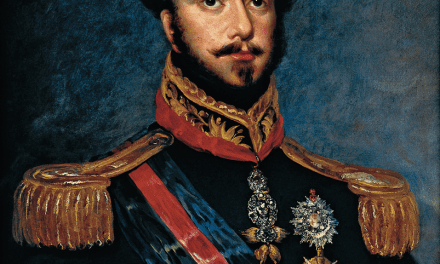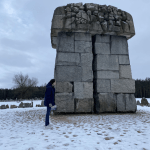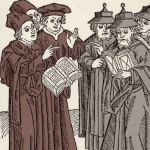On This Day in Jewish History: July 16th, 1547
https://www.instagram.com/p/CCtnlRIF97A/
.
.
On this day, the Bull Meditatio Cordis was issued by Pope Paul III which allowed the Inquisition to officially begin in Portugal. The Inquisition, both the Spanish and the Portuguese ones, were created by the Crown and Catholic Church to identify “heretics” among those who converted from Judaism and Islam to Catholicism.
The process of “identification” often took the role of faux court trials, torture, and persecution. The laws and processes of the Inquisitions lasted for over 300 years and spread across every continent that the Spanish and Portuguese colonized. The Bull issued by Pope Paul III led to Offices of the Inquisition being created in Lisbon, Evora, Coimbra, and Goa. Although Jews had been expelled completely from the Iberian Peninsula since 1496 (1492 from Spain, 1496 from Portugal), no formal persecution of Portuguese Jews vis-a-vi the Church was in effect until today. At the same time, many Jews had remained in both Spain and Portugal after being forcibly converted – referred to as conversos, New Christians, or the derogatory term: “marranos” meaning “pigs”.
The Inquisition had unofficially begun in Portugal in 1536 when the King decided he wanted to start one, but the Pope had not given his permission yet. This was at the same time as a rise in attacks and violence against Jews and conversos (Jews who remained in Iberia and forcibly converted as “New Christians”). In 1540, the first auto-de-fe was held. An auto-de-fe being an event where convicted “heretics” i.e. Jews who “converted” and continued practicing their Judaism in secret, were executed.
The Pope was supposedly receiving bribes from New Christians and conversos to refrain from declaring a formal Inquisition in Portugal. Ultimately, on this day, the Pope issued a Papal bull giving Portuguese the power to create an independent Inquisition that would have lasting negative effects on Jews, Protestants, Hindus, and Muslims for generations to come.
Similarly to the Spanish Inquisition, the Portuguese Inquisition was led by the King who worked with the Church to chose the head Inquisitor (who was likely a member of the royal family). Although, the Inquisition technically only deals with matters of religion, it influenced cultural and social decisions as well. The Inquisition’s activity spread to censoring books and dealing with witchcraft even though the original purpose was simply to find converts who were not following Catholicism properly.
The Portuguese Inquisition expanded its power to Portugal’s colonies (Brazil, Cape Verde, and Goa) as well. In Goa (Portuguese India), the Inquisition did not focus on only Jewish converts but Muslim and Hindu converts who the Inquisitors felt were still practicing their old religions. The Portuguese Inquisition continued until 1821 when it was finally disbanded.
The Inquisition may have had up to 40,000 people tried in Inquisition courts, many of the whom were Jews who had fled Spain in 1492 hoping for a better life in Portugal but unfortunately they were ultimately met with the same hate and antisemitism
.
#judaism#jewish#history#jewishhistory#onthisday#inquisition#weekof#portugal#history#conversos#betrayal#antisemitism
Image Source:
https://www.britannica.com/topic/Spanish-Inquisition
Text Source:













Start the discussion at community.jewishoriginal.com